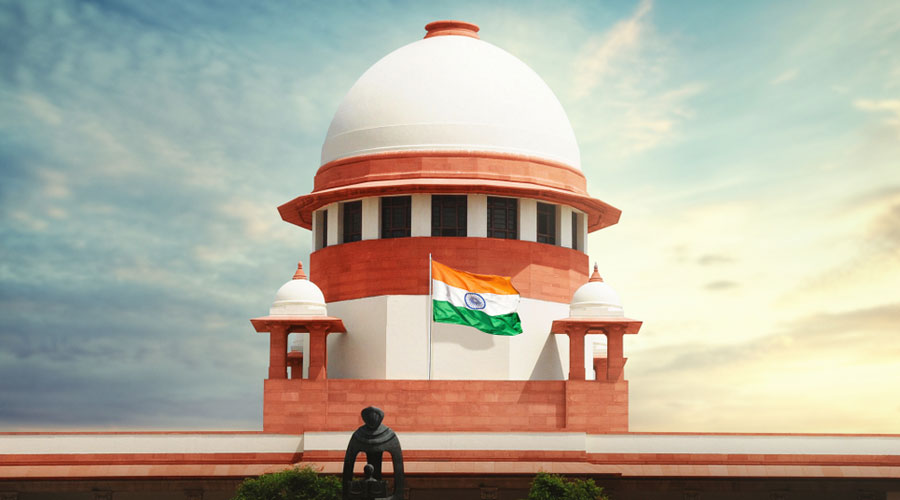The Supreme Court on Monday listed a batch of around 230 petitions challenging the constitutional validity of the Citizenship Amendment Act (CAA) on December 6 and granted three weeks to the Assam and Tripura governments to file their responses on the matter.
A bench of Chief Justice U.U. Lalit, Justice S. Ravindra Bhat and Justice Bela Trivedi adjourned the matter after solicitor-general Tushar Mehta, appearing for the Centre, said the government had already filed its affidavit, but the Assam and Tripura governments needed to file separate affidavits.
Mehta said 50 of the petitions before the court related to Assam and Tripura.
The amended law seeks to grant citizenship to migrants belonging to Hindu, Sikh, Buddhist, Christian, Jain, and Parsi communities who came to the country from Pakistan, Bangladesh, and Afghanistan on or before December 31, 2014.
During the hearing, senior advocate and DMK MP P. Wilson complained that the Centre had not addressed the issue relating to the grant of citizenship to Hindu Tamils from Sri Lanka.
The apex court designated the petition filed by the Indian Union Muslim League (IUML) to be the main case and appointed advocates Pallavi Pratap, appearing for the IUML, and central government panel advocate Kanu Agarwal as “nodal counsel”.
Chief Justice Lalit said the case would come up before another bench as he would retire on November 8.
He then dictated the following order: “In keeping with the directions issued by this court, these matters are listed today. At the outset, solicitor-general Mr Tushar Mehta has submitted that he may be given additional time to comply with directions issued by this court.
“He further submits that responses by states of Assam and Tripura have not been filed and accommodation be granted on that. Having noted that there are various matters projecting multiple issues, in our view the resolution to instant controversy can be achieved if two-three matters are taken as lead matters and convenience compilations are prepared well in advance. Such process will make the conduct of the proceedings easy.”
In 2019, the apex court had issued a notice to the Centre on the batch of petitions, but thereafter the matter could not be taken up as the country went into the Covid-induced lockdown on March 24, 2020.











